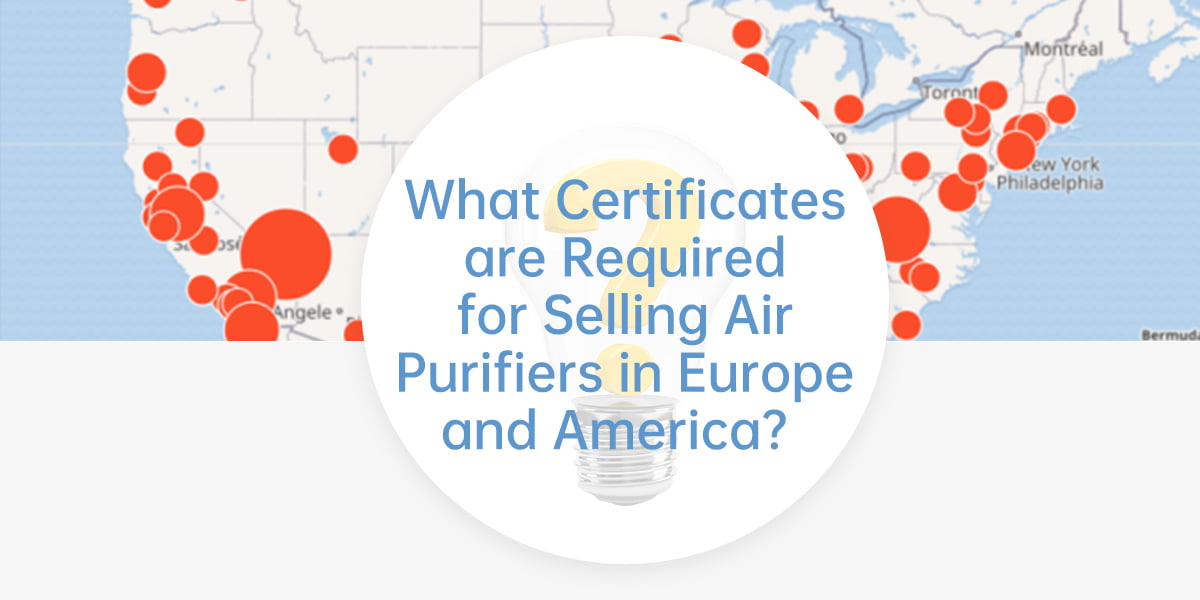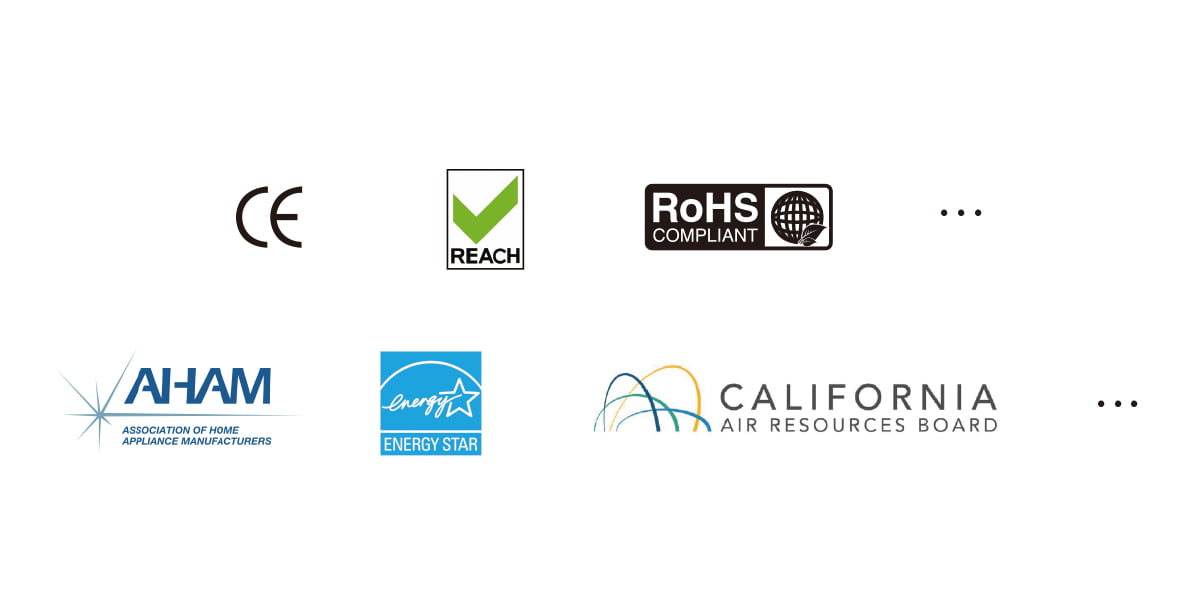What certificates are required for selling air purifiers in Europe and America?
In Europe and America, air purifiers must meet certain standards and regulations to be sold legally. The specific certificates required for selling air purifiers in Europe and America may vary depending on the country or region, but there are some common certifications that manufacturers should consider obtaining:

Europe: As mentioned earlier, air purifiers sold in Europe must meet certain standards and regulations, such as the CE Marking (This certification indicates that an air purifier meets certain health, safety, and environmental protection standards set by the European Union), EN Standards (Air purifiers must comply with certain European Norms (EN) standards, which specify requirements for performance, safety, and environmental impact), RoHS Compliance (The Restriction of Hazardous Substances (RoHS) directive restricts the use of certain hazardous substances, such as lead and mercury, in electronic products, including air purifiers), REACH Compliance (The Registration, Evaluation, Authorization and Restriction of Chemicals (REACH) regulation restricts the use of certain chemicals in products, including air purifiers, to protect human health and the environment), and Energy Efficiency Rating (The European Union has established an energy efficiency rating system for air purifiers to help consumers choose products that are energy efficient and environmentally friendly).
America: In the United States, air purifiers must meet certain safety standards set by the Consumer Product Safety Commission (CPSC), such as electrical safety and ozone emission limits. Additionally, air purifiers may receive certifications from independent organizations such as the Association of Home Appliance Manufacturers (AHAM), which verifies CADR ratings, and the Environmental Protection Agency (EPA), which provides Energy Star certification for energy efficiency.
California: In California, air purifiers must meet additional regulations set by the California Air Resources Board (CARB), which sets limits on ozone emissions and certifies air purifiers that meet certain standards for removing particles and gases from the air.

By obtaining these certifications, air purifier manufacturers can ensure that their products meet certain standards for performance, safety, and environmental impact, and can legally sell their products in Europe and America.



